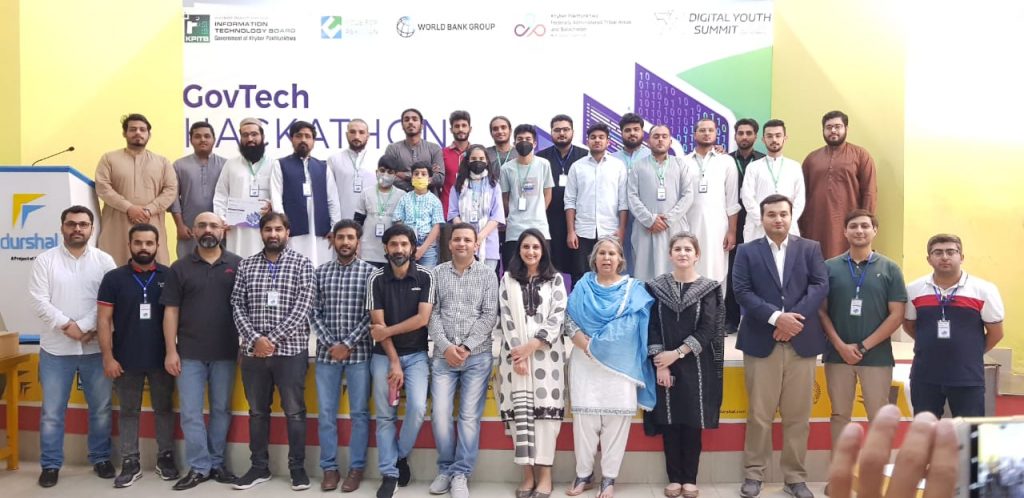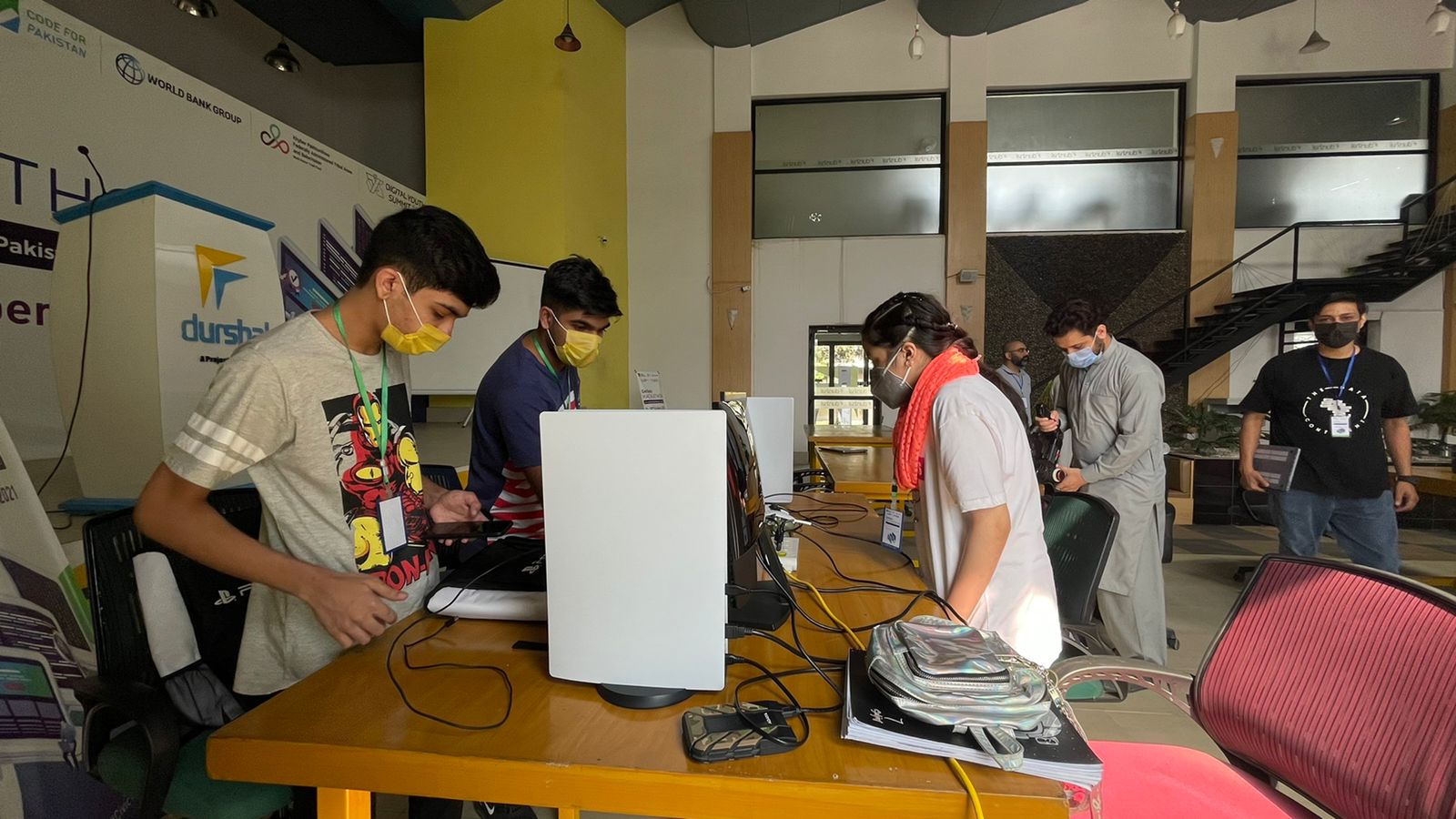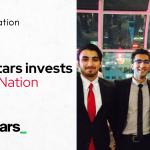Throughout the years numerous problems have begun to arise in the country, however, the latest technological trends have made it possible to overcome these respective challenges. As of now, Pakistan faces numerous concerns in regards to healthcare, education, environment, and more. However, a non-profit organization, hyper-focused on advancing the country through technology, called ‘Code For Pakistan’ aimed to solve global challenges by introducing a national level hackathon called ‘GovTech Hackathon’ which took place from October 8th to 10th.
This hackathon was supported by major names such as the World Bank, the KP IT Board, and numerous tech-focused organizations which played an immense role in ensuring the success of achieving the major aim behind the hackathon i.e. to solve one of the major challenges the country is facing today. This hackathon focused on key categories i.e. Healthcare, mobility, travel & tourism, environment, and education. However, Code For Pakistan had also encouraged problem statements and their respective solutions outside of the provided categories hence giving the participants the opportunity to explore and innovate. The top three winners of the hackathon would receive cash prizes ranging from Rs. 250,000 to Rs. 100,000 that would financially help them accelerate their project to the next level.
The GovTech Hackathon had lined up numerous speakers and mentors to inspire and guide the participating teams in areas of critical thinking and problem-solving. This included the following experts: Hannia Zia, Product Manager at Google; Shamyl Bin Masoor, LearnOBots; Huma Imdad, Development Specialist; Ali Moeen, Roamer; Huma Hamid, Cisco; Azmat Ali, LMKR; Muhammad Komail Abbas, FindMyAdventure; Zeeshan Sohail, Nestle; Zillay Mariam Sohail, Environment Specialist; Dr. Cedric Edwin, CECOS University of IT and Emerging Sciences; Dr. Ayesha Farooq, Al-Nafees Medical College; Imran Zualkernan, American University of Sharjah; Hira Javaid, Foster Learning; Prateek Sibal, UNESCO; Saeed Ul Hassan, Amalgar Consulting; and Salman Tariq, CEO, Devaam.
The first day was a virtual event open for all across the country which primarily gave the participants an in-depth about the concept of the hackathon and the respective rules and regulations. This included additional guidelines that all contestants must follow in order to ensure that their projects remain valid. This was followed by a panel discussion featuring previous winners of hackathons which were organized by Code For Pakistan. The previous winners shared their experiences and the obstacles they had faced when developing their solutions.
However, it was the second and third day which was the highlight reel of the event which was held physically at Durshal Peshawar while ensuring that all participants were vaccinated and followed all the SOPs. Upon arriving at the venue, the participants were already working on their projects or testing out a few bugs before the judging took place. These projects focused on unique solutions such as providing medical assistance to remote areas via applications, simulations that would provide assistance in terms of improving the local environment. In addition, some of these projects even focused on the United Nation’s Sustainable Development Goals (SDGs) and one of the key goals the government itself focused on. What was truly even more astounding was the age level of the participants as even children around the age of 12-13 had taken part in the hackathon. These children used resources from their gaming consoles to develop a solution for the problem they had noticed.
It just goes to show that in today’s time where knowledge is easily accessible age, education level, and experience are no longer creating boundaries. Apart from the project showcasing, key industry experts provided their valuable insights in regards to critical thinking and design thinking which ultimately play a valuable role in the entrepreneurial ecosystem.
The third and final day was similarly filled with empowering sessions focusing on pitching, product management, etc which featured industry leaders from tech giants such as Google, CISCO, etc. In addition, continuous mentorship was provided to the participants from the mentors who shared their valuable insights and suggestions before they submitted their projects.
All in all, the GovTech Hackathon paved the way for the introduction of new solutions in regards to improving the country as well as removing the barriers which most participants have faced in other events over the years. Overall, the future of Pakistan in the tech ecosystem seems bright and the country is surely on its way to being up to par with the rest of the advancing countries in the world.






 Techstars invests in Pakistani startup DevNation to provide 50 million under-skilled Pakistanis with full time jobs
Techstars invests in Pakistani startup DevNation to provide 50 million under-skilled Pakistanis with full time jobs